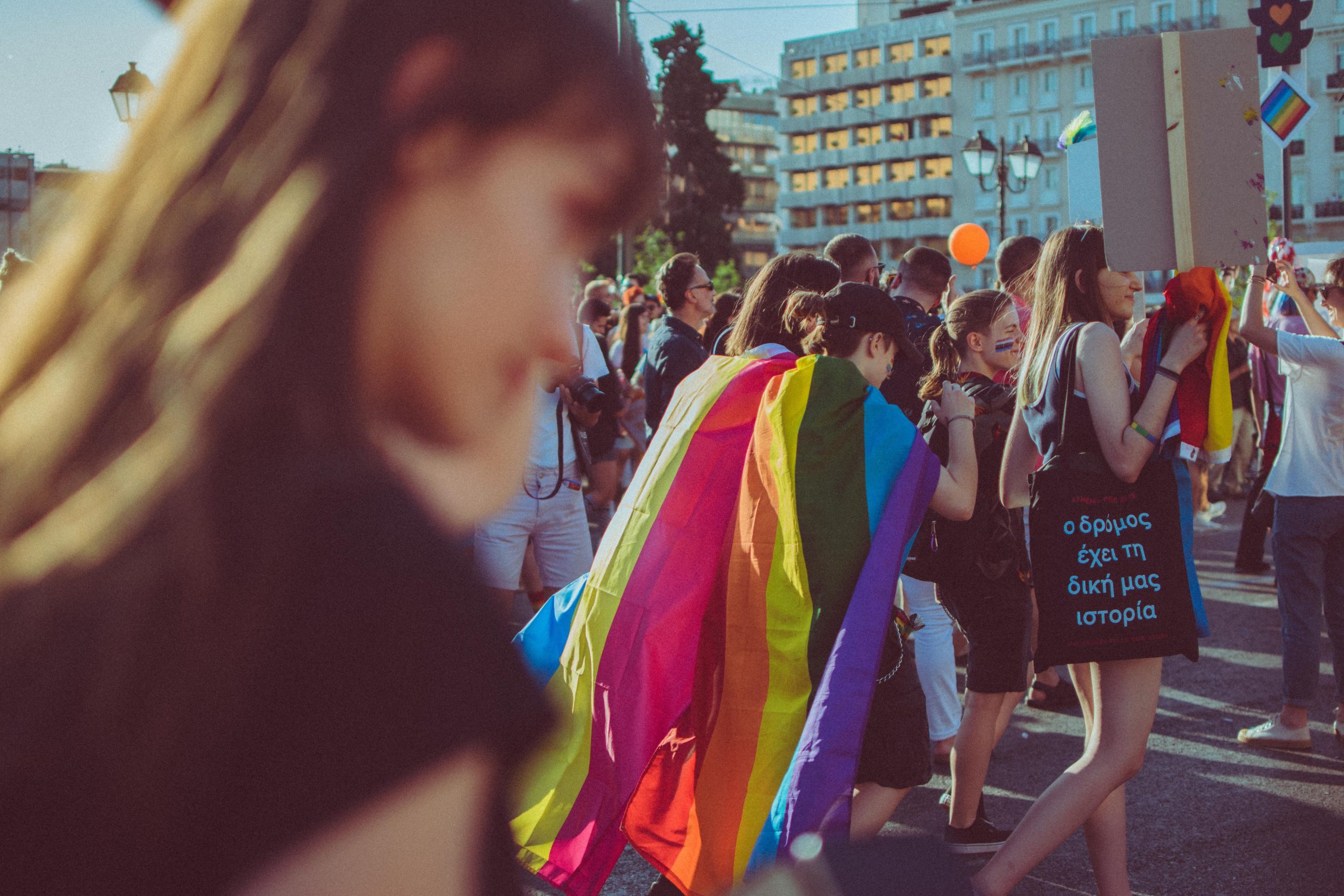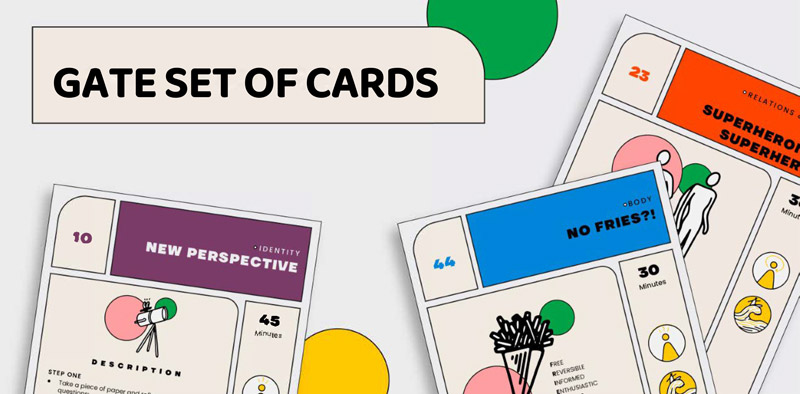LGBTQI+ people experience various forms of microaggressions on a daily basis that can be expressed both by members of the dominant group and by members of the community itself.
The article is written by Georgia Korre, a member of the Scientific Team of Orlando LGBT+, and was originally published under the Greek LGBTQ+ Helpline “11528-By Your Side”.

In one of his best-known books, Sue, an Asian-American psychologist and one of the main scholars of microaggressions, describes a snapshot of his daily life in order to highlight microaggressions and their impact: He and an African-American colleague of his, when boarding a small plane, chose to sit in the front rows. Shortly before the flight departed, three white men boarded and sat in front of them. The flight attendant, asked Sue and his colleague to move to the back of the plane to balance its weight and, although they reluctantly complied, they felt the flight attendant told them to go to the back of the bus. When they shared their discomfort with the flight attendant, she was indignant, became defensive, indicated that her intentions were misunderstood, implied that Sue and his colleague were being hypersensitive, and refused to discuss the matter further. Sue wondered whether he and his colleague were indeed hypersensitive or whether the flight attendant’s attitude was racist. This and many other similar psychological dilemmas arise for members of historically oppressed groups in their daily interactions with members of the dominant group.
The concept of microaggressions describes the verbal, non-verbal, behavioural and/or systemic insults, abuse, overlooking and lack of mentions that occur in everyday and usually brief interactions. These interactions, which may or may not be intentional, send derogatory and discrediting messages to specific individuals solely because of their membership in a historically oppressed group. Macroaggressions are usually expressed in the form of microinvalidations (e.g., statements that overlook, ignore, or devalue the lived experience of oppressed groups and are usually expressed without the member of the dominant group realizing it), microassaults (e.g. intentional statements and behaviours that communicate prejudice, by individuals who may believe that their behaviour is not harmful or not perceived), and microinsults (e.g. statements and behaviours that communicate covert negative attitudes towards oppressed groups).
Their study is based on the work of Chester Pierce who highlighted racial microaggressions in the 1970s and in recent years, as a term, it has been broadened to include all forms of microaggressions suffered by individuals and groups because of ethnic or racial origin, socio-economic class, gender, gender identity, sexual orientation, disability, body shape, etc. The emergence and study of the impact of microaggressions is part of an ever-growing theoretical and research trend within psychology and other social sciences, which is moving from the pathologisation of certain identities and the normalisation of others, to the emergence of the impact of oppression.
Some examples of microaggressions are:
- hetero/cissexist terminology (words or phrases that demean LGBTQI+ people)
- validation of hetero/cisnormative culture and behaviour (statements that describe heteronormative relationships or cis identities as models of relationships and identities that are considered ‘normal’)
- assumptions about a universal LGBTQI+ experience (assumptions that all LGBTQI+ people are the same)
- exoticization: behaviours that treat LGBTQI+ people as specimens, objects or animals, such as, for example, asking intrusive questions or making offensive jokes
- discomfort or disapproval of the LGBTQI+ experience: e.g. negative behaviours of blatant aversion to intimacy events of same-gender couples.
- refuting social heterosexism/cissexism: statements and behaviours denying the existence of homo-/bi-/transphobia.
- assumptions of abnormality and/or pathology: statements which exaggerate the sexual behaviour of LGBTQI+ people and imply that they are sexually ‘deviant
- denial of personal heterosexism/transphobia: a person’s refusal to admit that they have treated someone in a heterosexist/cissexist way, insisting that they cannot be homo-/bi-/transphobic because of the fact that they have an LGBTQI+ friend.
- attitude of tolerance towards LGBTQI+ people as long as they do not discuss their sexual relationships and love life (undersexualization)
- denial of trans people’s physical privacy: invasive questions about their anatomical features or sexual practices
- pressure on bisexual people to ‘change’: e.g. that they should ‘choose’ the sexual orientation that is in line with their relationship.
The above microaggressions in most cases remain unstated and invisible, unless they are pointed out by the people experiencing them. However, on most occasions when they occur, individuals refer to a dead-end situation that creates many psychological dilemmas; if they react, there are possible consequences for their safety, their job, their psychological well-being or even their health, while if they do not point them out, they become indignant, regretful, angry, and so on, feelings that usually lead to a rumble of thoughts due to the fact that they have remained inactive.
Mundane, everyday and covert racism, sexism and hetero/cissexism has various implications on the quality of life, self-esteem and standard of living, implications that for Sue seem to be more pronounced than traditional forms of racism, sexism and hetero/cissexism. Everyday experiences of microaggressions contribute to worsening anxiety, depression, post-traumatic stress, create a low sense of self-confidence and self-acceptance, a reduced sense of security, anger, resentment, embarrassment, guilt and further difficulty in sharing openly one’s sexual orientation and gender identity.
Unintentional oppression often comes from people in the dominant group who may perceive themselves as upholding values of equality, as well as experiencing themselves as impartial individuals who would not consciously partake in discriminatory treatment. Despite the fact that all of us live in societies that are governed by racism, sexism and hetero-/cissexism, it is very uncomfortable to realise that we carry stereotypes and prejudices. Many times, we prefer to deny, downplay or avoid honest self-introspection as well as a collective reflection that will lead us to the realisation of our privileges. However, this denial or avoidance turns us, often in absentia, into agents of discrimination, thus contributing, depending on our position and professional role, to the perpetuation of inequalities in the workplace, health services, education and so on.
One of the first steps we can take to address microaggressions is to make the invisible visible, that is, to identify, recognize and name the often-silenced experiences of everyday discrimination experienced by people belonging to historically oppressed groups and communities as microaggressions
When we become targets of microaggressions it is important to remember:
- Our safety: If the people we are facing are hostile or we believe they will act vindictively, when we choose to react, it is important to record the incident and have witnesses. If our safety is at stake, it is essential to remember that we can choose not to respond.
- If it is a familiar person, we can limit the initial conversation and schedule to speak with them at another time, to allow time to prepare for a contact that may cause distress, but also to give the person time to think it over. Before we talk about it again, we could make a plan for what we want to say and share it with trusted people. We could also criticise the behaviour rather than the perpetrator and talk about the feelings it is causing.
- Keeping an eye on our self-care, as constant contact with microaggressive behaviours usually makes us feel lonely and that we don’t belong. What helps is to talk to trusted people who belong to the same community as we, people who validate and acknowledge both our experiences and the feelings they evoke.
- If we see that daily contact with microaggressive behaviours is having an impact on our self-esteem, the way we perceive our identity, our emotions, etc., it is essential to seek psychological support from specialist individuals and services, such as the 11528- By your side support line, as well as support groups from LGBTQI+ organisations.
When we engage in some form of microaggressions it is important to remember:
- All of us engage in microaggressive behaviours, often without consciously realising it. In cases where we realize that we have wronged a person or when it is pointed out by other people, we need to admit the microaggression, learn from our mistake and apologize.
- We should listen to the person and try not to become defensive or invalidate their experiences and feelings, as these reactions constitute another form of microaggression.
- Developing awareness of the language we use, as some of the widely used words or phrases contain homo-/bi-/transphobic, racist and sexist messages.
- Being informed and aware of microaggressions and their impact makes us less defensive and cultivates appropriate reflexes when faced with an incident of microaggression.
Finally, it is imperative that we cultivate the ways and everyday practices in the institutional, political, social and cultural realm that both highlight microaggressions and their impact, and promote healing, both individually and collectively, of the historical wounds experienced by LGBTQI+ individuals and communities. Microaggressions constitute a reflection of oppressive value and belief systems that determine which individuals and groups constitute ‘Us’ and which constitute the ‘Other’, which individuals are included and which are marginalised, which individuals are considered superior and which are considered inferior, which are normal and which are not, which are attractive and which are repulsive, which are desirable and which are undesirable. Their origins are related to history, to oppression and to socio-political conditions. These are the areas we need to focus on, shaping more collective ways of protection and advocacy.
References
Clay, R. A. (2017). Did you really just say that? Here’s advice on how to confront microaggressions, whether you are a target, bystander or perpetrator. Monitor on Psychology, 48 (1), 46.
Nadal, K. L. (2014). A Guide to Responding to Microaggressions. Cuny Forum 2 (1), 71-76.
Nadal, K. L. (2018). A Decade of Microaggression Research and LGBTQ Communities: An Introduction to the Special Issue. Journal of Homosexuality, 66 (10), 1309-1316.
Nadal, K. L., Wong, Y., Issa, M.-A., Meterko, V., Leon, J. & Wideman, M. (2011). Sexual Orientation Microaggressions: Processes and Coping Mechanisms for Lesbian, Gay, and Bisexual Individuals, Journal of LGBT Issues in Counseling, 5: 21–46.
Nadal, Κ. L., Erazo, T., Schulman, J., Han, H. & Deutsch, T. (2017). Caught at the Intersections: Microaggressions toward Lesbian, Gay, Bisexual, Transgender, and Queer People of Color. Στο R. Ruth & E. Santacruz (Επιμ.), LGBT Psychology and Mental Health: Emerging research and advances (σελ. 133-152). California: Praeger.
Sue, D. W. (2010α). Microaggressions in everyday life: Race, Gender, and Sexual Orientation. New Jersey: John Wiley & Sons, Inc.
Sue, D.W. (2010β). Microaggressions: More Than Just Race. Can microaggressions be directed at women and gay people? Psychology today. Ανακτήθηκε από: https://www.psychologytoday.com/us/blog/microaggressions-in-everyday-life/201011/microaggressions-more-just-raceThe Montgomery Bus Boycott (2013). Ανακτήθηκε από: http://www.montgomeryboycott.com/overview/
